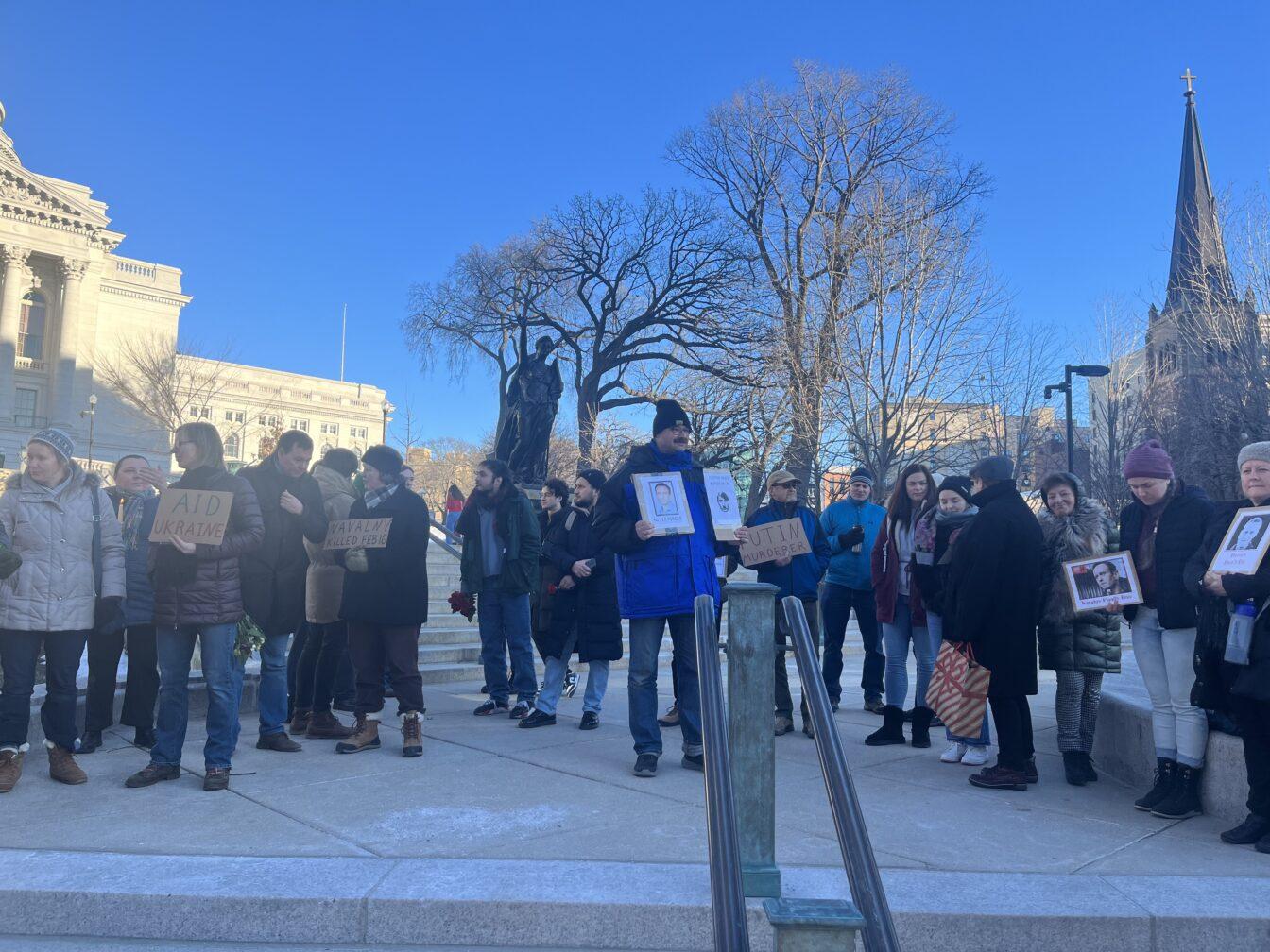Tens of people gathered at the Wisconsin State Capitol Sunday to honor the memory of Russian opposition leader Alexei Navalny.
Navalny died in prison on Friday while serving a 19-year sentence for extremism, according to the Associated Press. Navalny’s team is still investigating the circumstances of his death.
The event — intended “To remember Alexey Navalny who had dared to fight against Russian dictatorship,” according to the Facebook page — was organized by University of Wisconsin professor of history Elizabeth Lapina and UW College of Letters and Science systems engineer Andrey Nevinskiy.
For Nevinskiy, Navalny embodied the hope of a more democratic Russia.
“Navalny is not only the person but, he is a symbol to me — he is a symbol of an attempt to democratically protest against fascism,” Nevinskiy said in an interview with The Badger Herald.
Nevinskiy also said he fears Ukraine is not the last stop for Putin’s war train — a fear that is increasingly substantiated as U.S. leaders fail to supply arms to Ukraine and unequivocally condemn Vladimir Putin, according to UW professor of political science Yoshiko Herrera.
Herrera made reference to recent comments made by former president Donald Trump, indicating that he would not come to the aid of a NATO member country under the circumstances of Russian invasion — unless the country had committed the proportion of their budget to defense spending required by NATO membership, according to ABC News.
“What is really dangerous about Trump’s statement is that the way you deter an enemy is by making it crystal clear what the consequences are,” Herrera said. “So you say, ‘if you do this, then we’re going to do this other thing that’s extremely costly to you.’ That’s the nature of deterrence.”
Herrera said Trump’s ambiguous rhetoric toward Putin carries the potential to embolden the Kremlin and increase the likelihood of further conflict.
For Herrera, Lapina and Nevinskiy, continued U.S. support for Ukraine is both a critical aspect of U.S. foreign policy and instrumental in opposing Putin.
“I really want to emphasize this one point,” Lapina said. “The best way for the U.S. to stop Putin is to give aid to Ukraine.”



